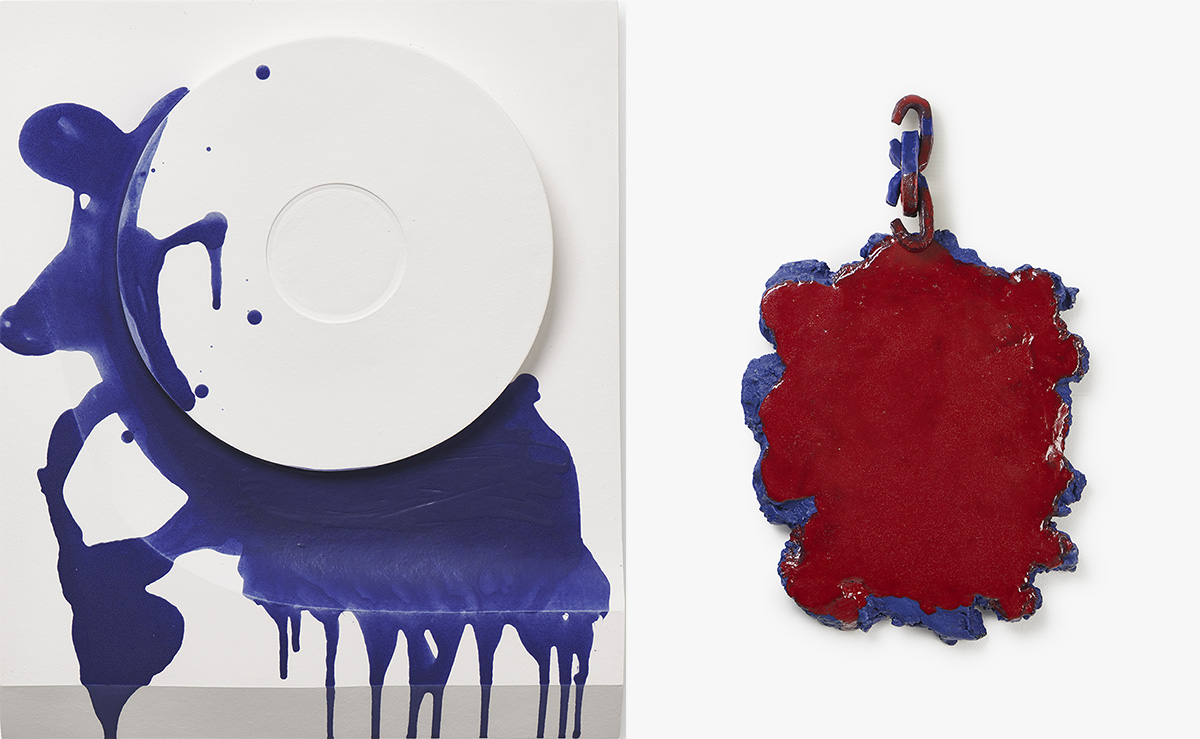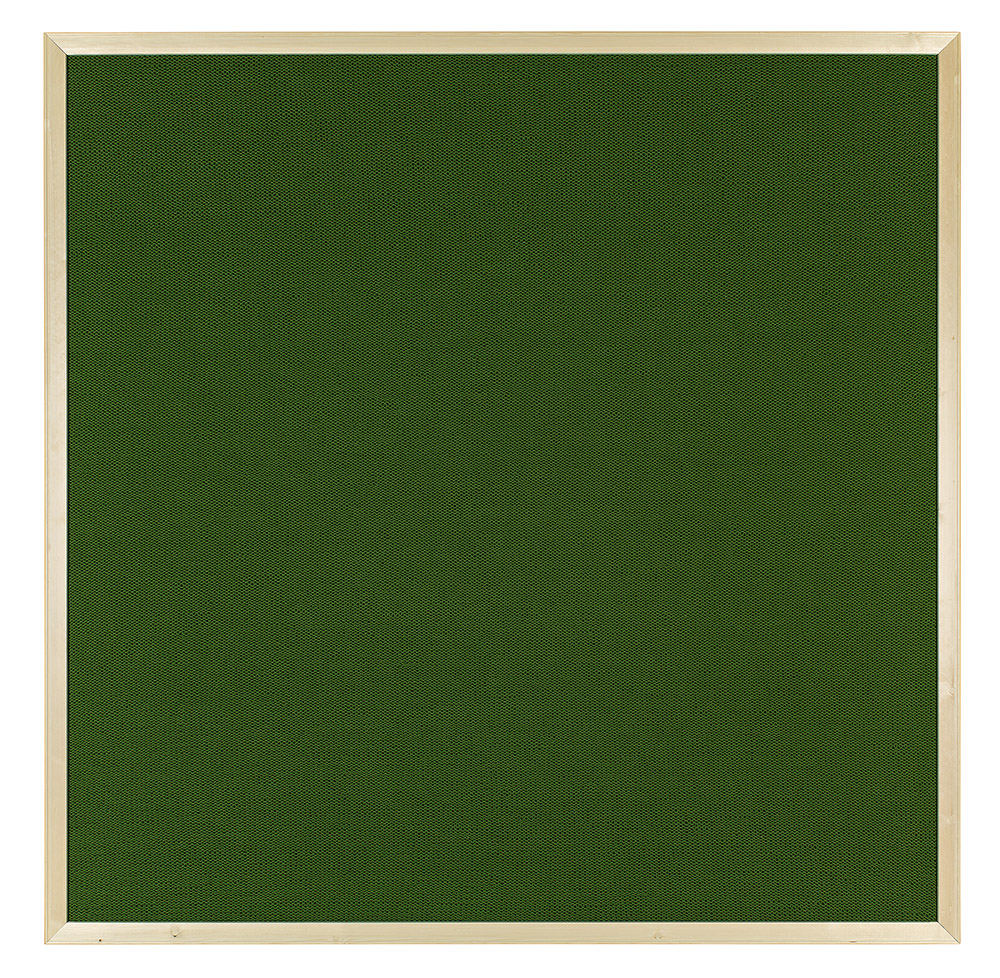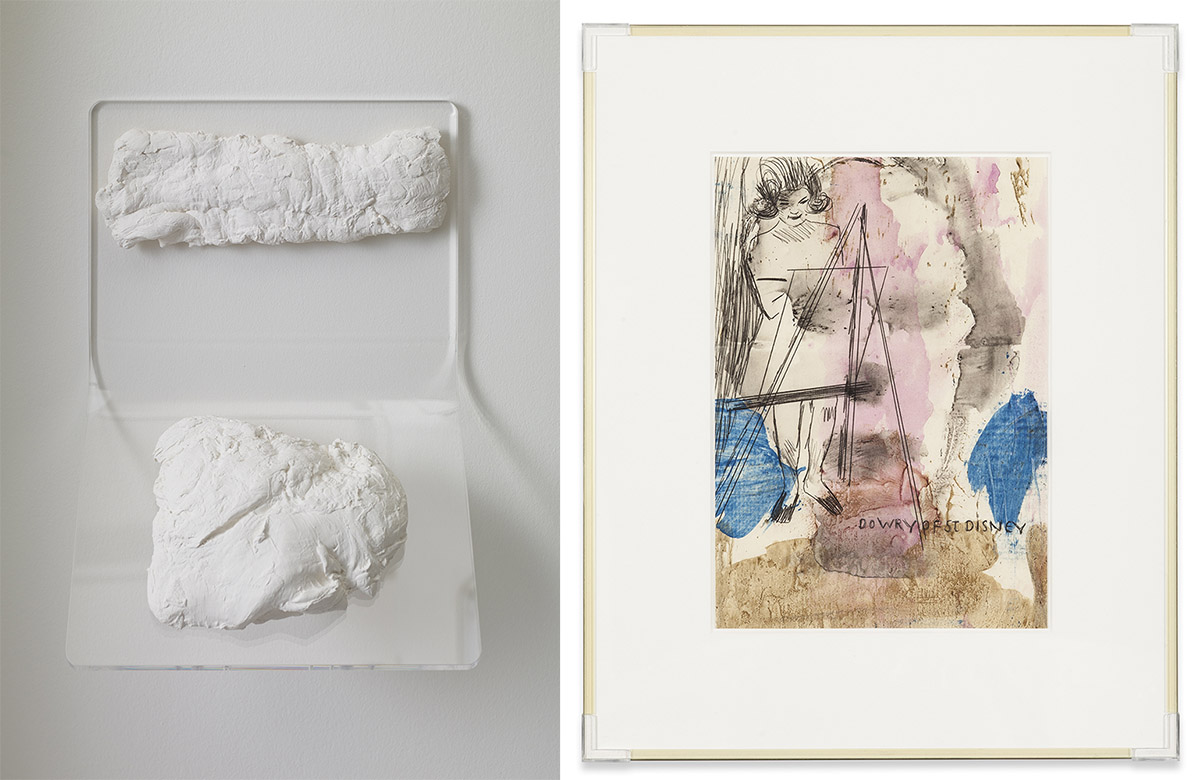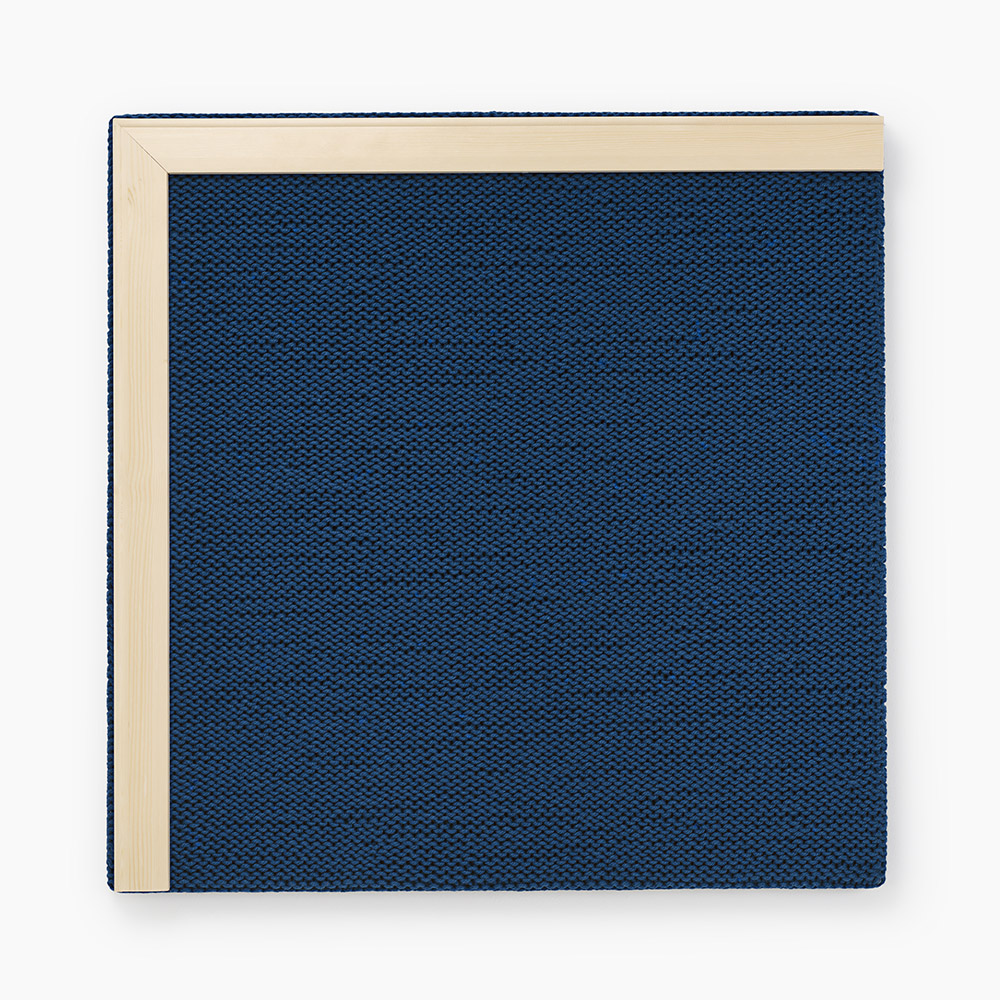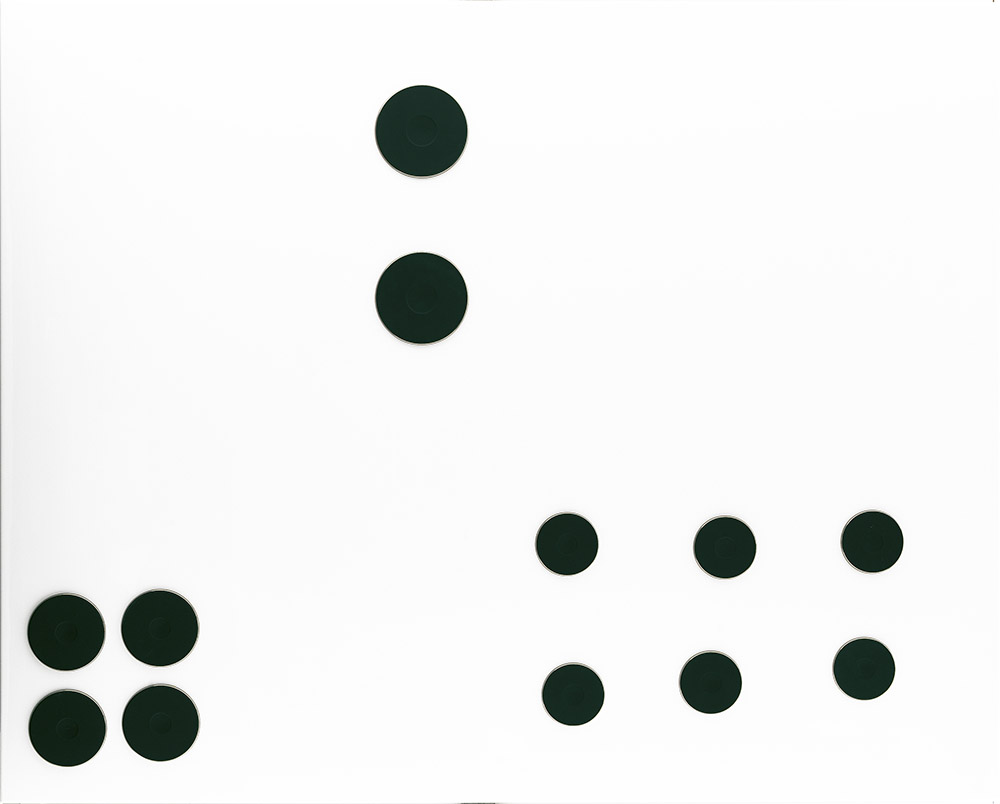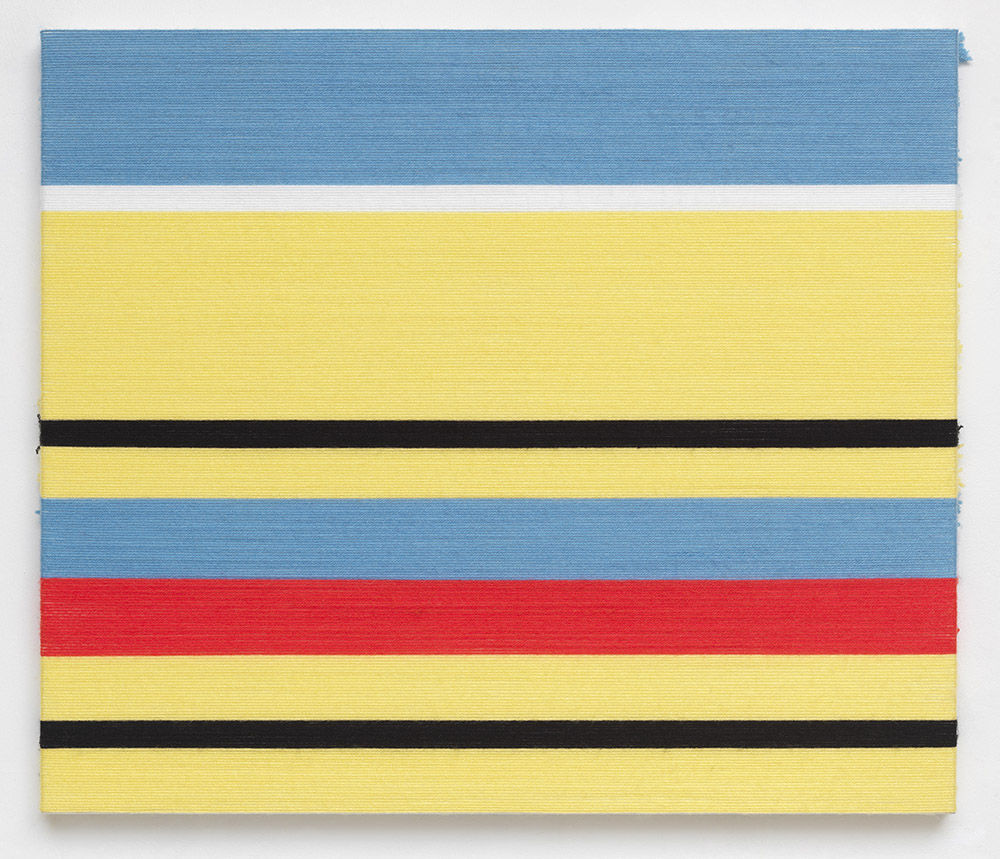ART-PREVIEW: Rosemarie Trockel-The Same Different
 For over 30 years, Rosemarie Trockel has consistently resisted a signature style and her practice ranges from works on paper, “Knitted paintings” and sculptures to performance. Though it is difficult to associate a particular style with her work, several concurrent themes can be identified within her oeuvre, such as sexuality, the place of craft and mechanization in art, as well as her fascination with ethnographic and scientific studies.
For over 30 years, Rosemarie Trockel has consistently resisted a signature style and her practice ranges from works on paper, “Knitted paintings” and sculptures to performance. Though it is difficult to associate a particular style with her work, several concurrent themes can be identified within her oeuvre, such as sexuality, the place of craft and mechanization in art, as well as her fascination with ethnographic and scientific studies.
By Efi Michalarou
Photo: Moderna Museet Archive
The exhibition “The Same Different” sums up thirty years of Trockel’s work, while a majority of the works in the show are new. Rosemarie Trockel’s breakthrough came in the 1980s, and ever since she has been critically examining art, the structures of society, and gender roles with analytical acuity and humor and with a sensuality that is all her own. The exhibition features more than forty works from 1988 to the present. Visitors have a chance to discover the breadth of Trockel’s work, in which ideas, materials, and everyday objects are transformed and given new meaning. Trockel is an artist who takes a stance and gives her opinion of contemporary society. The exhibition follows the artist’s career from her feminist examinations of the 1990s to later works in which she addresses issues of animal ethics, artistic processes, and what art can be. It shows her enthusiasm for experimentation and the rich variety of expressions in her works, which include video, digital prints, drawings, ceramics, and large installations. Rosemarie Trockel was born in the early 50s in Schwerte, Germany. She attended the university from 1974 to 1978 at the Werkkunstschule in Cologne. During her school days, talented young Trockel has already shown an undeniable interest is the grotesque and the unusual and majority of her early artworks were influenced by the later forms of surrealism. In the early 1980s, her first solo shows were held at the Cologne gallery of Monika Sprüth, which was famous for showcasing only female artists. Since the German art scene at the time was dominated by male artists such as like Joseph Beuys and Gerhard Richter. Since the beginning of her career, Trockel showed her love for addressing controversial issues of sexuality, feminism, as well as the hierarchy of the political and social systems. The most common themes are notions of female identity, feminism, also the relationship between fine art and craftsmanship as well as the presence or anonymity of the artist traceable in his artwork. In the 1980s, Trockel’s work has reached an international appraisal and she started organizing important solo exhibitions. Rosemarie Trockel has created a famous series of machine-knit wool works in the 1980s. In the exhibition “Untitled” (1994), raises the question: this a minimalist painting, or are those simply electric hotplates, set in a white, enamelled steel surface? In the mid-1980s, Trockel embarked on her subtle explorations of artistic and social contexts from a female perspective – on a male-dominated art scene. Trockel’s series “I See Darkness” (2011) is her most revered series featuring wool. In these pieces, a black yarn is stretched across a square of white Perspex. Which creates the illusion of a black and white painting. Trockel’s more recent wool paintings, from 2013, combine horizontal and vertical stripes of color, resembling the formal compositions of twentieth-century abstract painting. “After the Hunt” (2013) is a three-by-three metre painting where the color consists of wool yarn in forest-green, resembles a giant, hyper-realistic pot holder, in keeping with Trockel’s interest in low-status, everyday utensils.
Info: Curator: Iris Müller-Westermann, Moderna Museet Malmö, Ola Billgrens plats 2–4, Malmö, Duration: 29/9/18-3/3/19, Days & Hours: Tue-Fri 11:00-18:00, Sat-Sun 11:00-17:00, www.modernamuseet.se
